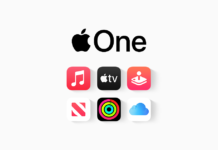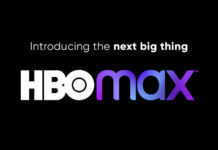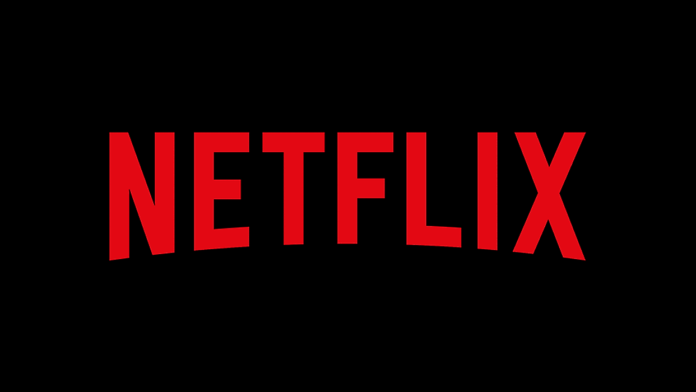Why Netflix Is in the News Right Now
Netflix experienced a surge in news media coverage in recent days because on April 21, the company announced its earnings for the first quarter of 2020. Stock market analysts had predicted that Netflix would see an 8.2 million quarterly increase in new subscribers as people began to hunker down in their homes and spend more time online with COVID-19 taking hold. In fact, Netflix added 15.77 million subscribers, the biggest quarterly subscriber growth ever for Netflix. This graphic from CNBC shows just how strong that growth was:

As The New York Times media reporter Edmund Lee put it, “Everyone you know just signed up for Netflix.”In an April 21 letter to shareholders, Netflix acknowledged that COVID-19 affected its subscriber growth in Q1 and predicted a return to slower growth rates in Q2:
It’s important that Netflix discuss the impact of COVID-19 in order to manage shareholder expectations. But COVID-19 does not dictate how Netflix operates. Netflix is also growing because it creates engaging content, is giving back to society, and runs its business well. Here’s why Netflix is the right company for the times we are living in:
Netflix Is Culturally Relevant
Netflix continues to succeed because the company is culturally relevant. Cultural relevance is essential for any entertainment company to succeed in the long run. Brands become culturally relevant when they connect with an audience through their attitudes, beliefs, and behaviors. Sometimes cultural relevance means shaping attitudes, beliefs, and behaviors, too.
When brands achieve cultural relevance, they become so inextricably linked with our lives that we become lifelong members of their tribes.And in a COVID-19 world, digital is where brands create cultural relevance.
For Netflix, cultural relevance begins with content. Tiger King, StrangerThings, The Witcher, and La Casa de Papel/Money Heist are all shows that not only capture our interest but also tap into the cultural zeitgeist. Tiger King, the most streamed show in America, also lit up social media during its initial run, inspired the growth of a cottage industry of Tiger Kingmemes, sparked conversations about topics ranging from polyamory to America’s obsession with true crime, and revived congressional interest in the Big Cat Safety Act.
The world is shaped by Netflix, too. Consider some of the ways Netflix has made its mark on our actions and language over the years:
- The phrase “Netflix and Chill” is a commonly used euphemism for doing the nasty. (You don’t Apple and Chill or Hulu and Chill, and God knows no one will ever Disney+ and Chill.) Similarly, “Netflix and Pop Tarts” long ago worked its way into our vernacular to describe living alone.
- Netflix ushered in the phenomenon of binge watching, in which people hunker down in front of their TVs and consume episode after episode of a show for hours at a time. The phrase “binge-watch” became the Collins English Dictionary word of the year in 2015.
- Stranger Things became a pop culture sensation by tapping into 1980s nostalgia (and arguably engineering that nostalgia).
- In 2019, Tidying up with Marie Kondo connected with an American materialism (and its consequences) so profoundly that the show actually created a spike in donations to thrift stores.


To understand how we live now, you have to understand Netflix.
Netflix Is Giving Back
Netflix is cementing its bond with America in another important way: giving back. Netflix was among the first major corporations to join the fight against the ravages of COVID-19. On March 20, Netflix announced a $100 million relief fund for members of the creative community who had lost their jobs as the U.S. economy began to slow down in the wake of COVID-19. In addition, Netflix donated $30 million to third parties and non-profits, providing emergency relief to out-of-work crew and cast across the broader TV and film industry.Netflix’s chief content officer Ted Sarandos said in a statement,
The gesture was both the right and the sensible thing to do. According to a recent Kantar study of the public’s attitudes about COVID-19, more than three-quarters (77 percent) of people surveyed say they would like to see brands talk about how they’re helpful in the new everyday life. And 77 percent would like brands to inform consumers about their efforts to face the situation.
Meanwhile 62 percent of people around the world surveyed by Edelman said that their country will not make it through this crisis without brands playing a critical role in addressing the challenges.We’re living at a time when businesses need to take an aggressive leadership role in helping others, and Netflix is answering the call. As people enter life beyond COVID-19, they’re going to remember who was there for them – companies such as Apple and Google, which are leading the way to develop contact tracing technology; Salesforce, which has launched its own fund to help small businesses; or the many businesses supporting healthcare workers.
I don’t know if Netflix will win any new customers with its $100 million fund, but it will gain some loyalty in the face of heightened competition.Meanwhile, since the beginning of 2002, Netflix’s stock is up 30 percent. In the words of Mad Money’s James Cramer, “In a very tough environment, companies . . . with a heart are doing well by doing good. Turns out that rewarding your employees and protecting your customers is good for business.”
Netflix Benefits from Having an Agile Culture
In the business world, Netflix is well known for its culture of “freedom and responsibility.” Netflix operates through a decentralized structure in which cohesive teams are given leeway to make test new ideas and learn from them. This approach makes it possible to move quickly. A recent Harvard Business Reviewarticle on the benefits of an agile culture cited Netflix as a company that was born agile. Netflix’s ways of working also serve the company well now.
The pandemic has caused companies large and small to move people out of their offices and collaborate remotely during shelter-in-place mandates. But running a business via remote collaboration means more than learning how to use Zoom to manage a meeting. Businesses are now learning how to do everything from planning new products to managing customer relationships online. The faster they can adapt, the better. And some are adjusting better than others. As Netflix noted in its shareholder letter, the company was able to adapt quickly:
We’re still in the early days of fighting COVID-19. Uncertainty lies ahead. Netflix, like many companies, is sailing into unchartered waters, and it cannot predict how many people will remain subscribers once shelter-in-place orders are lifted.“We don’t use the words guess and guesswork lightly,” CEO Reed Hastings said on the company’s earnings interview. “We use them because it’s a bunch of us feeling the wind and it’s hard to say. But again, will internet entertainment be more and more important over the next five years? Nothing’s changed in that.”









































